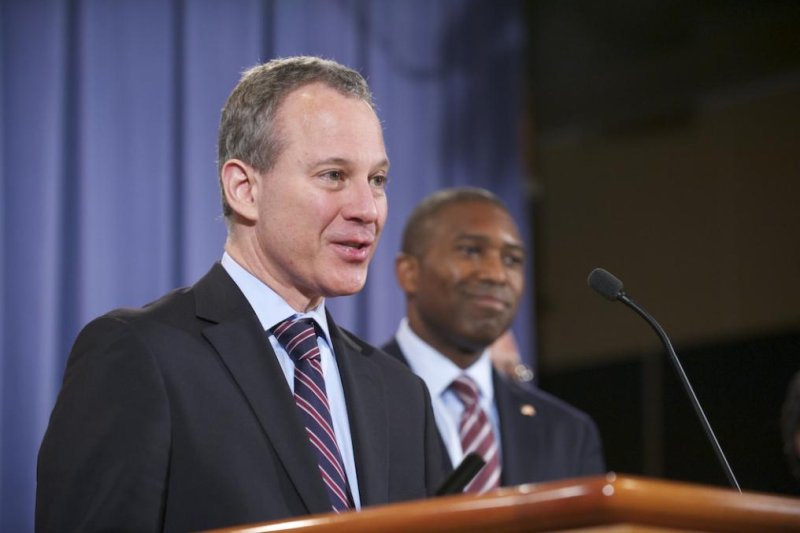New York Attorney General Eric Schneiderman. CC/Lonnie Tague-DOJ
App-based car service Lyft, a rival of Uber, said the new rule would effectively mean a monopoly for the better-funded Uber.
Scheiderman agrees.
"From a competitive standpoint, these advances may lower the cost of entry for new for-hire vehicle services and encourage existing services to compete more effectively for both drivers and passengers," Schneiderman wrote in the letter he sent to commission.
"Requiring agreements between competitors raises serious antitrust issues. Ultimately the proposed rule is likely to lead to market consolidation around a small number of the best-capitalized and most well-known services, whether large existing firms or well-financed newcomers. This market concentration will hurt consumers, who can expect fares to increase and service to decline. If this anti-competitive outcome followed from collusion in the industry, it would be illegal. It is no less disturbing as a product of regulatory action," he added.
The commission postponed making a decision on the possible rule at its last hearing on the matter. A new date hasn't been announced for making a ruling.















